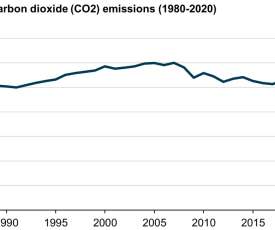Renewable-methanol fueled Geely cars in fleet testing in Iceland; 70% reduction in WTW CO2 compared to gasoline
Green Car Congress
DECEMBER 12, 2017
million investment in 2015) in Carbon Recycling International ( CRI ), an Icelandic company which produces renewable methanol using recycled CO 2 emissions sourced from a local thermal power plant and hydrogen made by splitting water with electrolysis (Power-to-Methanol). The switch from gasoline to methanol is not noticeable to the driver.





























Let's personalize your content